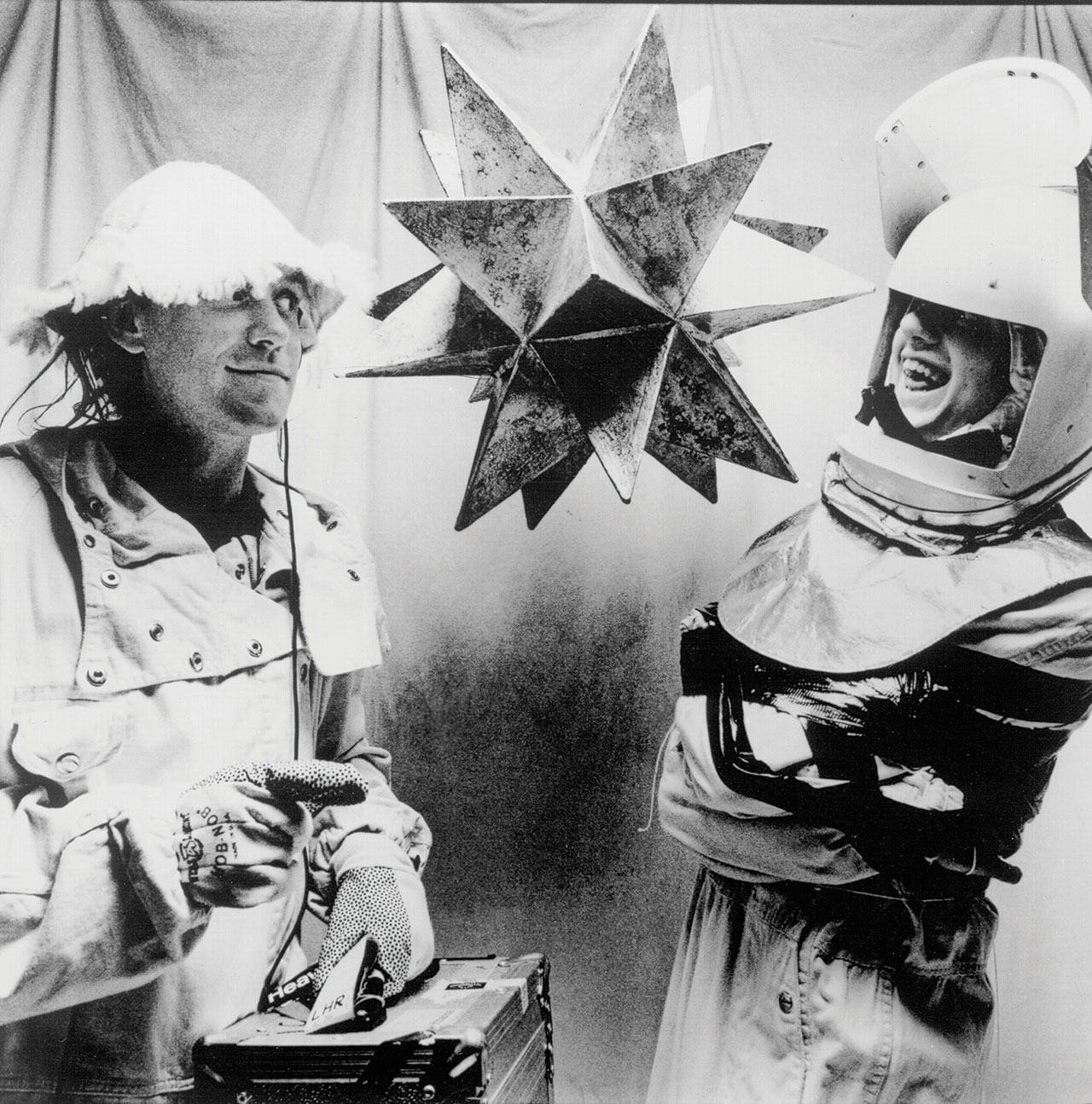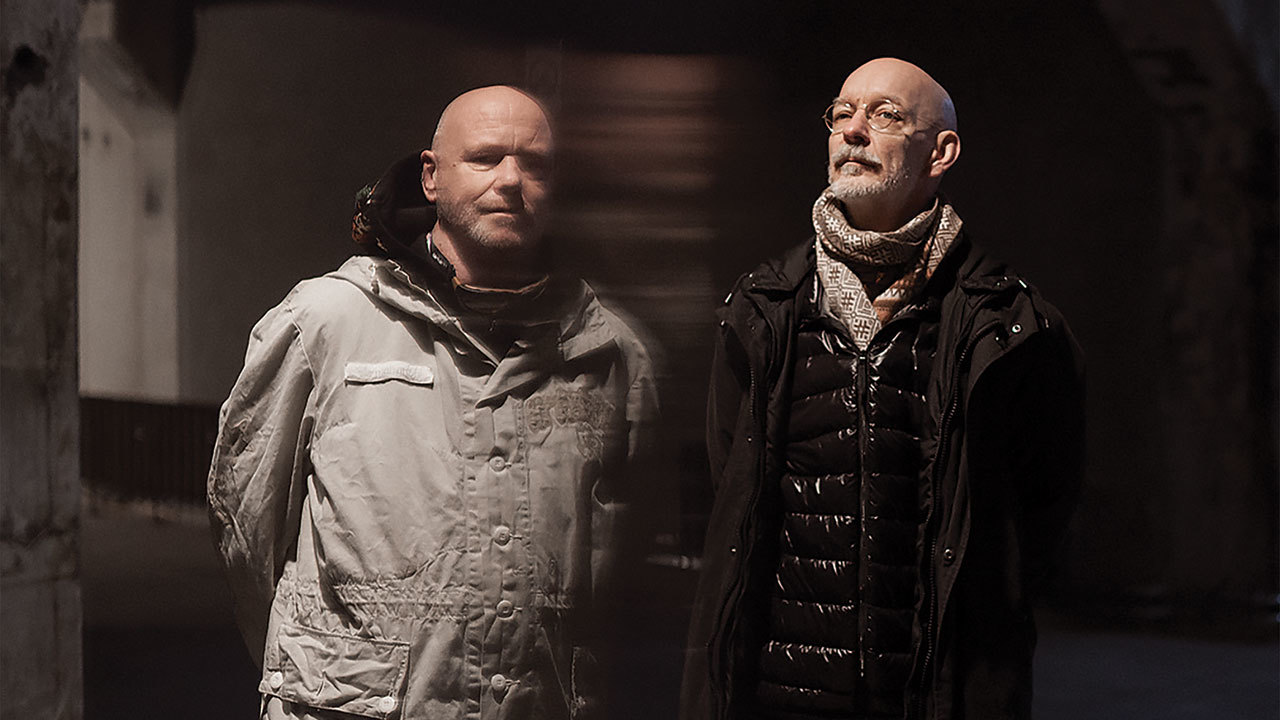Prog’s enduring relationship with electronica might seem like a matter of historical record, but it’s equally true that a lot of prog fans continue to turn their noses up at the very notion of – whisper it – dance music. Fortunately, for well over two decades, The Orb have been making a nonsense of the idea that the two disciplines are in any way incompatible. From the release of their debut masterpiece The Orb’s Adventures Beyond The Ultraworld in 1991, Alex Paterson’s pioneering ambient crew have been widely praised (and, on occasion, decried) for being ‘The Pink Floyd of techno’. Their mesmerising blend of electronics, dub reggae, lysergic atmospherics, punk subversion and, yes, Floydian grandeur ensure that all those silly barriers between musical genres are rendered meaningless.
“When you build a bridge between types of music, it goes two ways,” says Paterson. “So it didn’t surprise me that prog fans liked what we were doing. It surprised me how long it took for people to come out and say it. The connections with prog are numerous, I must admit! We did last July with Steve Hillage, but the main reason was to get [ex-Sex Pistol] Paul Cook on drums! So it always balances. I’m a Libra, I’m a natural balancer of things. If you’ve got such a diverse amount of music and information inside your bonce, and you want to make a record with all of that in there somewhere, you’re going to end up with something like The Orb because it’s totally not a formula that record companies can deal with… and don’t I know it!”
Although they often seem like the natural successors to 70s electronic giants like Jean-Michel Jarre and Tangerine Dream, The Orb emerged from a much more diverse array of influences and inspirations than even their most dedicated fans may realise. Paterson’s real entry point into the music world was as a roadie for post-punk renegades Killing Joke in the early 80s, when school friend and Orb alumnus Youth was in his first tenure as the band’s bassist.
By that point, Paterson’s musical taste encompassed everything from punk and dub reggae through to Kraftwerk and King Crimson, and it’s that multifarious curiosity that has been a hallmark of The Orb’s now vast catalogue of immersive, sample-driven music.

“The first record I bought was Electric Warrior by T.Rex. The second one was In The Court Of The Crimson King and the third one was Starless And Bible Black,” he recalls. “So thank you, Robert Fripp! The prog thing has always been there, I suppose. But I’m not the biggest Floyd fan. Back in the punk days, I secretly liked Meddle. I loved the woof-woof track [He means Seamus – Ed] and I loved Echoes. I still love it. It’s the ultimate Pink Floyd tune. Nothing else could get anywhere near that, so why bother with anything else?
“Other people in The Orb have a different opinion. Youth worships Pink Floyd and I don’t blame him! He managed to produce the last Floyd album so he’s hardly going to start dissing them [laughs]… And, of course, me and Youth went to school with Guy Pratt, and obviously he’s Floyd’s bass player now.”
The early 90s saw The Orb become one of the most revered live acts on the planet, thanks to eye-frying light shows and, more importantly, the thrilling contrast the band’s widescreen psychedelia provided to the frantic thud of dance music’s ecstasy-fuelled mainstream. Received rock wisdom was inherently anti-prog at that time, but whether through drug-crazed abandon or a simple embracing of more free-thinking values, The Orb seemed to be sustaining prog’s mischievous spirit almost single-handedly. 1993’s Live 93 album even came adorned with a daft tribute to Pink Floyd’s Animals artwork, replete with a cuddly toy sheep. As a consequence of his band’s unique reputation, Alex Paterson has since crossed creative swords with Steve Hillage on his System 7 project, with Robert Fripp on 1994’s FFWD album, with Pink Floyd’s David Gilmour on 2010’s Metallic Spheres, and with Jean-Michel Jarre: an unlikely collaboration that somehow brought The Orb their greatest commercial triumph.
- Peter Baumann: 'Music was the fourth entity in Tangerine Dream'
- Far out: Vangelis on the science and power of music
- Jean-Michel Jarre: 'Electronic music deals in sound, not just notes'
- How the synthesiser helped shape progressive music
“He phoned me up, wanting to do some work with us, and he said that he’d been looking at my career and was amazed how well I’d done and how I’d stuck to my guns, and that was a big deal coming from him!” Paterson remembers. “The first time I worked with him was in 1996 and we got to No.4 in the UK charts. It started off life as a remix of Oxygene – that’s why we ended up calling it Toxygene. Jean‑Michel didn’t like it very much, so he rejected it, but we took all the bits he’d done away from it and we played it to a musicologist. He said, ‘There’s nothing of him there, you’re free!’ so we took it to the label. They thought it was a hit and the rest is history. We worked with him again recently, and he liked what we did this time!”
The Orb’s latest album, COW – Chill Out, World!, sees them once again exploring the distinctly Floydian soundscapes that originally made the band’s name, but with the inevitably dizzying array of unexpected sounds and styles that have long made The Orb the discerning prog fan’s electronic act of choice. Paterson clearly delights in his ability to blur the lines between genres: a punk rocker with a prog heart and a head full of strange, electronic noises.
“There’s actually a guy doing underground drilling to find if there are any fault lines or weird noises underneath Battersea Power Station, so I’ve asked him to record all the drilling so I can turn it into a tune!” he laughs.
“It’s just the way I am, really. I’ve got an internet radio station [WNBC.London], I play a lot of diverse stuff, a lot of weird Orb stuff that hasn’t been released, and one week I may do something progressive anyway. In fact, I definitely will! It’s just that the slant is always me. You won’t catch me doing something normal!”
COW/Chill Out, World! is available now on Kompakt. See www.theorb.com for more information.
Klaus Schulze: 'Forget electronica and prog, it's all just music'
Kraftwerk's Wolfgang Flur on life at the cutting edge of modern music

